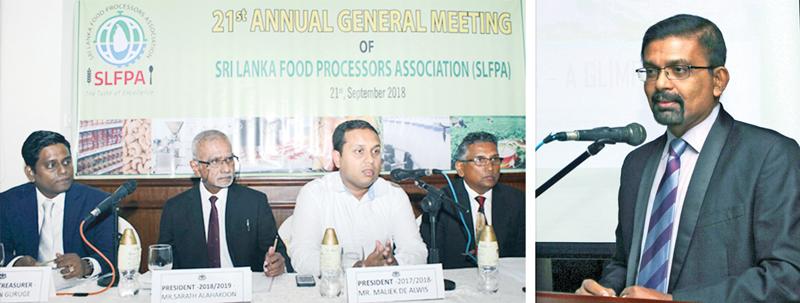
Under the proposed Sri Lanka Development Policy Framework’s Megapolis project, the Western region will have an estimated population of nine million by 2030.
While focusing on building infrastructure, planning and policy making, it is a dire need to plan for a quality food supply to this foreseeable population increase, Additional Secretary to the Megapolis and Western Development Ministry Madhawa Waidyaratna told the 21st Annual General Meeting of the Sri Lanka Food Processors’ Association recently.
The Development Policy Framework consists of four key areas; strengthened governance, equitable economic growth, improved competitiveness and infrastructure development. The Megapolis project falls under the latter and is to be achieved through developing 10 diverse areas, which are the Central Business District, Aero City, Maritime City, Logistics Corridor, Tech City, Administrative City, two Industrial Cities, two Tourism Zones, Forest City and Plantation City.
There will also be functional areas of Transport and Solid Waste Management. The increase in mobility through various proposed transportation models, such as the Light Rail System, Multi-modal Transport Hub and Inland Water based passages together with rapid development will attract more people to the Western region and the Colombo city in particular.
Waidyaratna queried as to how sustainable is food security in this region and whether the country as a whole could achieve it.
“We live in a shockingly unequal world. Hunger is a constant feature in millions of people while obesity has become an epidemic in developed countries. We can witness the same scenario in the Western region of Sri Lanka,” he said.
The economic wealth and socio-cultural imbalance has resulted in more than half the population of the Colombo metropolis having less than the prescribed calorie intake per day.
As the most urbanised region in the country, the population records to have nutritiously unbalanced dietary patterns, and food quality does not meet the standards. The need is to move away from primary agriculture to processed and value added agriculture. The initiative requires a combined strategy with the expertise of urban planners, agricultural and health departments. With high population density and complex socio-cultural dynamics, the Western region has the most diverse food systems in the country, which require vastly different types of food. With proposed development, this situation will only improve.
The issue needs to be viewed as a multi-faceted domain in terms of food supply, food waste management, nutrient and food safety and food prices. The responsibility mainly lies in organisations, such as the Sri Lanka Food Processors’ Association to formulate correct strategies which will cover these issues.
Waidyaratne drew attention to food waste management, which is a problem in the region since the city area is heavily utilised for commercial and residential purposes. The Megapolis project will focus on creating locations to dispose food waste and converting solid waste to energy.
Ma’s Tropical Food Managing Director Mario de Alwis predicted a deficit in water and food in the next two decades resulting from global warming and environmental damage. The issue is that agriculture is not profitable enough to motivate the next generation to take it forward.
He highlighted the importance of the State’s role in providing incentives, environmental friendly technology and enablling remote management of agriculture.
